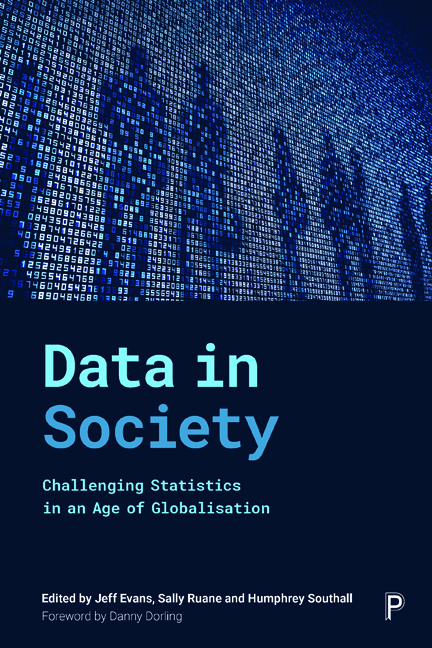Book contents
- Frontmatter
- Contents
- List of figures, tables and boxes
- Notes on contributors
- Foreword
- Preface
- General introduction
- Part I How data are changing
- Part II Counting in a globalised world
- Part III Statistics and the changing role of the state
- Part IV Economic life
- Part V Inequalities in health and wellbeing
- Part VI Advancing social progress through critical statistical literacy
- Epilogue: progressive ways ahead
- Index
Part VI - Advancing social progress through critical statistical literacy
Published online by Cambridge University Press: 30 April 2022
- Frontmatter
- Contents
- List of figures, tables and boxes
- Notes on contributors
- Foreword
- Preface
- General introduction
- Part I How data are changing
- Part II Counting in a globalised world
- Part III Statistics and the changing role of the state
- Part IV Economic life
- Part V Inequalities in health and wellbeing
- Part VI Advancing social progress through critical statistical literacy
- Epilogue: progressive ways ahead
- Index
Summary
The previous Parts of the book have examined how new technologies, globalisation, the changing role of the state and economic life, and inequalities in health and wellbeing have influenced data and statistics. In this Part, we point to resources and methods for promoting progressive change.
We begin with the Radical Statistics Group, a facilitator of this book project, and a longstanding independent network which supports members and allies in critical analysis of statistics and research. Jeff Evans and Ludi Simpson (Chapter 23) trace the Group's development, through the early years, during the post-1990 reaction to Thatcherism, and since 2000. Nowadays, discussion takes place via email lists and social media, and in small, usually ad hoc working groups, where personal connections and the established ethos of the group facilitate working relationships. Thus the group promotes ‘critical statistical literacy’, simultaneously supporting action related to issues of public policy and governance.
One case study of the use of RadStats resources comes from a group of patients, researchers, statisticians and medics campaigning for the recognition of, and further research into, Lyme disease, a hitherto relatively poorly understood condition caused by tick bites. Kate Bloor (Chapter 24) explains how a multidisciplinary health movement has harnessed critical statistical thinking to challenge various aspects of Lyme disease treatment, including prevention, initial health service response, testing and diagnosis. This case study illustrates the role of patients in challenging disease categories, creating new evidence, relating evidence to policy making, and thereby challenging healthcare policy. It shows how patient researchers, as ordinary citizens, can work with statistics experts to understand science's methodologies as well as its limitations.
Another case study of statistical activism comes from an examination of ‘precarious’ employment in Australian universities. In the last two decades, insecure work in universities in many countries has grown exponentially, alongside the rapid marketisation of higher education, in turn reflecting the neoliberal ideal of a flexible workforce. In Australia most university teaching is now done by hourly paid employees. This structural dependence poses a reputational problem for universities, and limits the pursuit of industrial justice. Universities respond by obfuscating the statistical evidence. Nour Dados, James Goodman and Keiko Yasukawa (Chapter 25) report on their efforts to estimate the levels of precarity, within academic trade union campaigns.
- Type
- Chapter
- Information
- Data in SocietyChallenging Statistics in an Age of Globalisation, pp. 303 - 306Publisher: Bristol University PressPrint publication year: 2019



